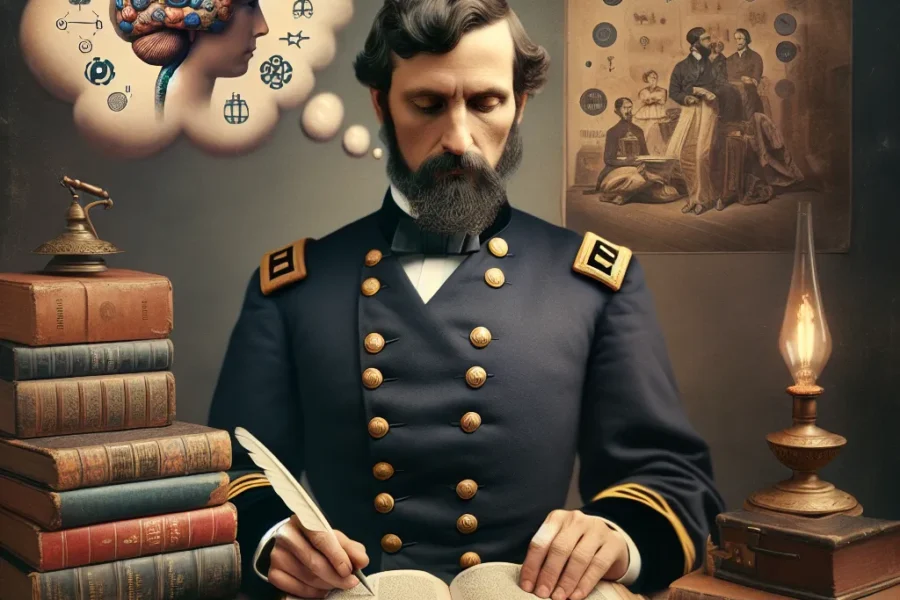Rutherford B. Hayes, the 19th President of the United States, governed during a time of great change and complexity. Born on October 4, 1822, in Delaware, Ohio, Hayes’s presidency (1877-1881) came during the post-Civil War Reconstruction era. Many look back on his leadership with various questions, including speculation about his intellectual prowess. This brings us to a commonly queried topic: What was Rutherford B. Hayes’s IQ score? Delving into the nuances of historical IQ estimations can be quite fascinating, especially when discussing a leader of such historical significance.
If you are looking for legitimate IQ Tests which pass the entry bar for Mensa, see our IQ Tests.
To accurately evaluate Rutherford B. Hayes’s intelligence quotient (IQ), it’s important to understand the context and limitations of IQ testing. Modern IQ tests were not developed until the early 20th century, notably by Alfred Binet and Theodore Simon. These assessments have evolved over time to better gauge various aspects of cognitive ability. Estimates of historical figures’ IQ scores are largely speculative and based on their achievements, writings, and other documented aspects of their intellect.
Educated at Kenyon College in Ohio and Harvard Law School, Rutherford B. Hayes displayed academic excellence early on, ranking highest in his class at Kenyon and performing admirably at Harvard. A prolific writer and an orator, his legal career established him as a man of substantial intellectual ability well before he ventured into politics.
During the Civil War, Hayes served with valor in the Union Army, achieving the rank of brevet major general. His military career was marked by courage and strategic acumen, qualities that often coincide with high intellectual capabilities. Indeed, many historians infer that Hayes possessed qualities indicative of a high IQ based on these exploits.
As President, Rutherford B. Hayes dealt with complex issues such as the end of Reconstruction, civil service reform, and the railroad strikes of 1877. His policies demonstrated both foresight and a nuanced understanding of governance. For example, his push for civil service reform aimed to reduce corruption within the federal government, and while it saw mixed results during his presidency, it laid the foundations for future improvements.
Moreover, his decision to withdraw federal troops from the Southern states (which marked the end of Reconstruction) was a complex and highly contested move. This act required not only strategic political acumen but also a deep understanding of the sociopolitical landscape of the time. Such decisions reflect his ability to think at a high level of complexity, which often correlates with a high IQ.
If one were to estimate his IQ based on modern standards and his life’s accomplishments, it would likely be quite high. Historians and scholars believe that Hayes’s IQ could theoretically range anywhere from 130 to 150, placing him well above the average and potentially in the “gifted” category on modern IQ scales. However, it’s crucial to note that these are educated guesses rather than definitive measurements.
Rutherford B. Hayes also demonstrated notable intellectual curiosity and a commitment to continuous learning. His diaries and letters, which have been preserved and studied extensively, reveal a man deeply engaged with the pressing issues of his time. Hayes often reflected on philosophical and ethical questions, demonstrating an ability to ponder abstract concepts that require high cognitive functions.
Additionally, his post-presidential life reinforced his intellectual stature. Hayes was actively involved in education reform and humanitarian efforts, serving as the president of the National Prison Reform Association and the trustee of Ohio State University, among other roles. These activities underscore his enduring commitment to societal improvement and intellectual engagement.
It’s also telling that Hayes surrounded himself with a similarly intellectually robust cabinet, including figures like John Sherman and Carl Schurz, both of whom were known for their sharp intellects and reformist zeal. This further suggests that Hayes valued and recognized intellectual prowess, often a trait of someone who themselves possess a high-order cognitive capability.
However, the question of Hayes’s IQ score can’t be definitively answered due to the lack of direct psychometric evaluations from his time. Any score attributed to him would be inherently speculative and based primarily on an analysis of his accomplishments, writing ability, and contributions to various complex fields like law, politics, and social reform.
If constructing an IQ profile for Rutherford B. Hayes from an educational and psychological standpoint, we’d gather insights from his academic records, military strategies, presidential policies, writings, and lifelong learning habits. Each of these components contributes to an understanding of an individual’s intellect. For instance, his stellar academic performance suggests above-average analytical skills and memory recall. His success in military strategy points to spatial intelligence and problem-solving capabilities. His clear and insightful written communications reflect strong verbal-linguistic intelligence.
In the end, while it’s intriguing to speculate on the IQ of historical figures like Rutherford B. Hayes, it’s important to acknowledge the limitations and potential inaccuracies inherent in retrospective psychological assessments. Yet, through the lens of his accomplishments, writings, and intellectual pursuits, it is evident that Hayes was a man of significant intellectual capability, showcasing talents that, in modern terms, would likely correlate with a high IQ score.
In summary, although we cannot definitively pin down Rutherford B. Hayes’s IQ score, we can infer from his life’s body of work that he possessed a keen intellect. His academic achievements, reformist policies, military strategies, and lifelong commitment to learning paint the picture of an individual with substantial cognitive abilities. This serves as a reminder of the multifaceted nature of intelligence, extending beyond mere numbers to encompass a wide range of skills and achievements.



Leave a Comment